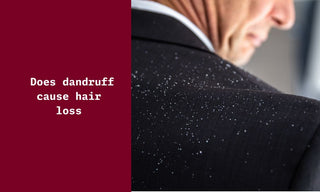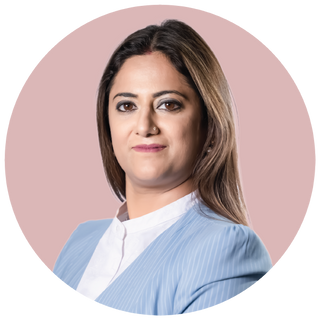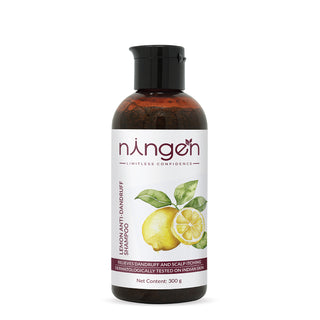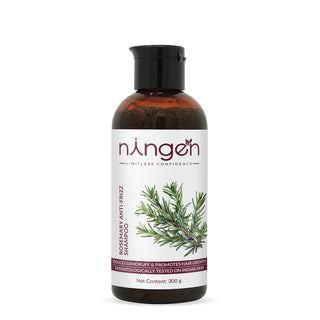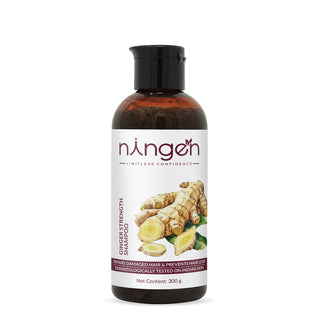Confidence grows when dandruff goes. Prioritize your scalp health for happier hair days.
When it comes to hair care, many people are concerned about dandruff and its potential impact on hair health. A common question that arises is, "Does dandruff cause hair loss?" Understanding the relationship between dandruff and hair loss is crucial for those looking to maintain a healthy scalp and luscious locks.
In this blog post, we will explore what dandruff is, how it affects your scalp, and whether it can lead to hair loss. By delving into the causes and consequences of dandruff, we aim to provide clarity and guidance for managing both dandruff and hair loss effectively.
In This Article;
- What is Dandruff?
- Causes of Dandruff
- Types Of Dandruff
- How Does Dandruff Affect The Scalp?
- The Role of Sebaceous Glands in Dandruff Formation
- Does Dandruff Cause Hair Loss?
- Dry Scalp vs. Oily Scalp: The Impact On dandruff And Hair Health
- Does Dandruff Cause Hair Thinning?
- How Can Dandruff Be Treated to Prevent Hair Loss?
- Which Shampoo is Good for Dandruff and Hairfall?
- Natural Ingredients That Help Prevent Dandruff and Hair Loss
- How to Maintain Healthy Scalp to Minimize Hair Loss?
- The Role of Moisturizers And Oils in Nourishing a Dry Scalp
- Lifestyle Factors and Dandruff-related Hair Loss
- Final Thoughts
- TL;DR(Too Long ; Didn't Read)
- Frequently Asked Questions
What is Dandruff?
Dandruff is a common scalp condition characterized by the excessive shedding of dead skin flakes. These white flakes are often visible on the hair and shoulders, especially against dark clothing. While not serious or contagious, dandruff can be embarrassing and challenging to treat.
The exact cause of dandruff is unclear, but it can result from various factors. For some, it's due to rapid skin cell turnover on the scalp. Other contributing factors include dry skin, sensitivity to hair products, and skin conditions like eczema or psoriasis. Additionally, a fungus called Malassezia, which thrives on the scalp's natural oils, can aggravate dandruff by irritating it.

Causes of Dandruff
Dandruff can be caused by a variety of factors, including:
- Dry Skin: One of the most common causes of dandruff, dry skin can lead to flaking and itchiness.
- Seborrheic Dermatitis: This condition affects areas rich in oil glands, such as the scalp, eyebrows, and sides of the nose, causing red, greasy skin covered with flaky white or yellow scales.
- Malassezia: A yeast-like fungus that lives on the scalps of most adults. Sometimes it can grow out of control, feeding on the oils produced by hair follicles, which can cause irritation and lead to more skin cells growing and flaking off.
- Not Shampooing Enough: If you don't regularly wash your hair, oils and skin cells can build up on your scalp, leading to dandruff.
- Sensitivity to Hair Care Products (Contact Dermatitis): Sometimes sensitivities to certain ingredients in hair care products or hair dyes can cause a red, itchy, scaly scalp.
- Skin Conditions: Conditions such as eczema or psoriasis can cause dandruff due to the excessive shedding of skin cells.
- Diet: Poor diet lacking in essential nutrients like zinc, B vitamins, and certain fats can contribute to dandruff.
- Stress: High levels of stress can affect your overall health, including your scalp health, potentially leading to dandruff.
- Hormonal Changes: Hormonal fluctuations can influence oil production on the scalp, potentially leading to dandruff.
- Environmental Factors: Weather changes, particularly cold, dry winter air, can contribute to dandruff by drying out the scalp.
Types Of Dandruff
Two significant types of dandruff include:
- Dry Scalp Dandruff: Caused by environmental factors like cold weather, it produces small, non-oily flakes that typically don't lead to hair loss and can be managed with proper scalp hydration.
- Oily Scalp Dandruff: Characterized by larger, oily flakes that cling to the scalp and hair, often due to excess sebum production. This type can be associated with conditions like seborrheic dermatitis, potentially contributing to hair fall.
Individuals experiencing significant hair fall alongside dandruff should consult a medical professional to identify any underlying conditions affecting both symptoms.
How Does Dandruff Affect The Scalp?
Dandruff can have a variety of impacts on the scalp, leading to symptoms that range from merely annoying to more severe cases of discomfort. Primarily, dandruff creates an itchy scalp, which is often the result of the irritation caused by the increased shedding of skin flakes. The constant itchiness can compel individuals to scratch the area, which can lead to physical damage to the scalp's surface and potentially cause further irritation or infection. Additionally, dandruff can impact the health and appearance of the hair. While it does not directly cause hair loss, the associated inflammation and scratching might weaken hair roots, potentially leading to increased hair fall in some cases. Maintaining a healthy scalp is crucial for optimal hair growth and health, and dandruff can disrupt this balance.
The Role of Sebaceous Glands in Dandruff Formation
Sebaceous glands play a crucial role in scalp health and dandruff formation.These glands are located below the skin's surface near each hair follicle and are responsible for secreting an oily substance called sebum. Sebum is crucial for maintaining a hydrated and flexible scalp and for protecting hair's shine and integrity.
However, when sebaceous glands produce too much sebum, it can lead to an oily scalp, fostering fungi like Malassezia, which irritates the scalp and accelerates skin cell renewal, causing dandruff. Conversely, insufficient sebum production results in a dry, flaky scalp. Thus, maintaining a balance in sebum production is essential for preventing dandruff and ensuring overall scalp and hair health.

Does Dandruff Cause Hair Loss?
The question of whether dandruff can cause hair loss is a common concern among individuals experiencing both conditions. While dandruff itself doesn't cause permanent hair loss, the itching and scratching it triggers can lead to temporary hair fall.
Additionally, untreated severe dandruff might escalate into Seborrheic dermatitis, intensifying inflammation and further contributing to hair shedding. In essence, while dandruff isn't the direct cause of hair loss, its effects can indirectly result in temporary thinning or shedding of hair.
Debunking The Myth: Understanding the Relationship Between Dandruff and Hair Loss
The myth that dandruff leads to baldness is not entirely accurate. Dandruff itself doesn't directly attack or weaken hair follicles, so it doesn't cause irreversible baldness. However, severe dandruff or conditions like Seborrheic dermatitis can impact hair health, potentially leading to increased shedding. Yet, this shedding is typically not permanent. While dandruff may exacerbate hair loss in the presence of other factors like genetics or medical conditions, it's usually not the primary cause.
Temporary Hair Loss: The Connection to Dandruff and Scalp Conditions
When discussing dandruff and hair loss, it's important to emphasize that any hair fall related to dandruff is often temporary. The impact dandruff can have on the scalp is the primary concern, as it can lead to skin conditions that might indirectly cause hair shedding. Understanding the various scalp conditions linked to dandruff and their potential impact on hair is crucial:
|
Scalp Condition |
Relation to Dandruff |
Impact on Hair |
|
Seborrheic Dermatitis |
Severe form of dandruff |
Can include temporary hair loss |
|
Fungal Infections |
Can be associated with flaky skin |
May lead to hair thinning or loss |
|
Psoriasis |
Scalp may shed scales |
Thinning hair due to scratching |
Each condition can contribute to a cycle of inflammation, scratching, and possible hair loss. But with appropriate treatment, such as medicated shampoos containing active ingredients like salicylic acid, zinc pyrithione, or tea tree oil, one can control dandruff and alleviate the risk of hair fall associated with these scalp conditions. Stress management and maintaining a healthy scalp environment are also instrumental in preventing temporary hair loss due to dandruff-related scalp issues.
Dry Scalp vs. Oily Scalp: The Impact On dandruff And Hair Health
When addressing the impact of dandruff, it's essential to understand the differences between a dry and oily scalp:
|
Dry Scalp |
Oily Scalp |
|
Flakes are often smaller and less oily |
Flakes are often larger and more oily |
|
Associated with itching and irritation |
Can lead to a buildup of oils and skin cells |
|
Can result from cold weather, heaters, or hair-drying methods |
Often exacerbated by excessive sebum production |
Both dry and oily scalp conditions can contribute to dandruff, albeit through different mechanisms, and can influence the health of the hair, potentially leading to hair thinning or loss if not adequately managed.
Does Dandruff Cause Hair Thinning?
Hair thinning, unlike full baldness, refers to the decrease in the density or diameter of individual hair strands, which can lead to the overall appearance of less volume. This can be particularly distressful for individuals who value a full head of hair. While dandruff—an excessive formation of dry or greasy flakes—is not a direct cause of hair thinning, the factors that intertwine the two are worth exploring.

Understanding Hair Thinning in Dandruff Sufferers
Various factors may contribute to hair thinning in individuals with dandruff, including:
- Scalp Irritation: An itchy and inflamed scalp resulting from severe dandruff can lead to scratching, which may damage the hair roots and weaken the hair shafts, potentially causing them to thin out over time.
- Unhealthy Scalp Environment: A scalp affected by dandruff often means that it is not the ideal environment for hair to grow, which might impact the health of the hair follicles and the quality of hair growth.
- Hair Care Practices: In an attempt to rid the scalp of dandruff, individuals might use harsh hair care products or treatment regimens that are not suited to their scalp's needs, thus contributing to hair thinning.
- Underlying Scalp Conditions: Dandruff might be a symptom of another scalp condition, like Seborrheic dermatitis or psoriasis, which could impact hair health more significantly.
The Role of Inflammation and Scalp Damage in Hair Thinning
The process of inflammation can damage the hair follicles, sometimes leading to a condition known as folliculitis, where the follicles are inflamed to the point that they cannot support healthy hair growth. Continuous inflammation may lead to cicatricial alopecia, a type of permanent hair loss where the inflammation has led to scarring of the hair follicles.
Individuals need to address the inflammation and mitigate scalp damage with the following methods:
-
Medicated Shampoos: Regular use of anti-dandruff shampoos containing active ingredients known to reduce inflammation.
-
Scalp Treatments: Applying topical treatments like creams or serums with anti-inflammatory properties.
-
Gentle Hair Care: Avoid harsh hair treatments and styling practices that can exacerbate scalp irritation and damage.
-
Nutrition: Ensuring a diet rich in anti-inflammatory foods to support scalp health from the inside out.
Understanding Seborrheic Dermatitis and its Impact On Hair Fall
Seborrheic dermatitis is a chronic, inflammatory skin condition characterized by red, scaly, and flaky skin. It predominantly affects areas rich in oil-producing glands, including the scalp, and it typically manifests much more severely than common dandruff.
Key factors of seborrheic dermatitis and hair fall include:
- Inflammation: The inflammation characteristic of seborrheic dermatitis can cause damage to hair follicles and may disrupt the natural growth cycle of hair, leading to potential hair fall.
- Scratching: The intense itchiness associated with seborrheic dermatitis often leads to scratching, which can further damage the scalp and hair follicles, exacerbating hair loss.
- Scalp Oils: Overproduction of oils can create a breeding ground for yeast, which may contribute to both dandruff and hair fall if left unchecked.
The Role of Fungal Infections in Dandruff-related Hair Fall
Fungal infections caused by a yeast-like fungus known as Malassezia are commonly linked to dandruff. This fungus is present on most scalps without causing issues; however, when it overgrows, it can lead to dandruff, irritation, and an itchy scalp.
Crucially, while Malassezia is not directly responsible for hair fall, its presence and the body's reaction to it can result in scalp conditions that are:
- Itchy: The itch-scratch cycle induced by fungal-related dandruff can damage hair follicles, leading to weakened hair and potential hair fall.
- Inflammatory: Fungal infections can cause inflammation around the hair follicles, inhibiting hair growth and potentially leading to temporary hair loss.
Approaches to mitigate fungal-related hair fall include:
- Anti-Dandruff Shampoos: Look for products containing ketoconazole, pyrithione zinc, or selenium sulfide, which specifically target the fungus.
- Scalp Maintenance: Regular cleansing to maintain a clean scalp environment can help minimize fungal growth.
- Scalp Health Monitoring: Observing any changes in scalp condition and seeking medical advice promptly can prevent further complications that may lead to hair fall.
How Can Dandruff Be Treated to Prevent Hair Loss?
Treating dandruff is crucial in maintaining a healthy scalp and possibly preventing hair loss associated with dandruff-related conditions. To mitigate dandruff and reduce the risk of hair fall, the following steps can be taken:
- Regular Wash Routine: Maintaining a consistent hair washing routine aids in removing dead skin flakes and excess oils that can contribute to dandruff.
- Balanced Diet: Eating a diet rich in vitamins, minerals, and antioxidants can promote scalp and hair health.
- Stress Management: High stress levels can exacerbate scalp issues, so finding effective ways to manage stress can help in controlling dandruff.
- Avoid Harsh Products: Some hair products, including dyes and stylers, may irritate the scalp. Opting for gentle, hypoallergenic products can minimize scalp irritation.
- Hydration: Keeping the scalp moisturized is key, especially in colder months when the air is dry. Light, non-greasy scalp oils can help maintain moisture balance.
- Medical Treatment: In cases of severe dandruff or seborrheic dermatitis, seeking professional medical advice for prescription treatments may be necessary.
Which Shampoo is Good for Dandruff and Hairfall?
Selecting an effective anti-dandruff shampoo is an important step in controlling dandruff and maintaining hair health. Here are some considerations when choosing a shampoo:
- Scalp Type: Determine if your scalp is oily or dry, as different formulas cater to different scalp conditions.
- Active Ingredients: Look for shampoos with proven ingredients such as zinc pyrithione, salicylic acid, or tea tree oil, which target the root causes of dandruff.
- Gentleness: A gentle formula that cleanses without stripping hair of its natural oils is ideal for daily use.
- Moisturizing Properties: Shampoos with moisturizing ingredients can help combat dryness associated with dandruff.
- Hair Type Compatibility: The shampoo should be suitable for your hair type, whether it be curly, straight, colored, or chemically treated.
Natural Ingredients That Help Prevent Dandruff and Hair Loss
Here are some natural ingredients known for their benefits in preventing dandruff and promoting hair health:
1. Tea Tree Oil: Tea tree oil is renowned for its powerful antifungal and antibacterial properties. It helps combat the Malassezia fungus, a common cause of dandruff. Additionally, its anti-inflammatory properties soothe the scalp, reducing itching and flakiness.
2. Coconut Oil: Coconut oil is rich in lauric acid, which has antimicrobial properties that help reduce dandruff-causing fungal infections. It also deeply moisturizes the scalp, preventing dryness and flakiness, and strengthens hair follicles, promoting healthy hair growth.
3. Aloe Vera: Aloe vera has soothing and anti-inflammatory properties that help reduce scalp irritation and dandruff. It also contains enzymes that promote healthy hair growth by keeping the scalp balanced and hydrated.
4. Apple Cider Vinegar: Apple cider vinegar helps balance the scalp's pH level, making it less conducive to the growth of dandruff-causing fungi. Its antimicrobial properties help cleanse the scalp and reduce dandruff.
5. Neem Oil: Neem oil has strong antifungal and antibacterial properties, making it effective against dandruff. It also soothes the scalp and reduces inflammation, which can help prevent hair loss due to scalp conditions.
6. Rosemary Oil: Rosemary stimulates blood circulation to the scalp, which can promote hair growth and prevent hair loss. Its antimicrobial properties also help keep the scalp healthy and free of dandruff.

7. Lemon Juice: Lemon has acidic properties that help balance the scalp's pH level, reducing dandruff. Its antimicrobial properties help cleanse the scalp and prevent dandruff-causing fungal infections.

8. Fenugreek Seeds: Fenugreek seeds are rich in proteins and nicotinic acid, which strengthen hair follicles and promote hair growth. They also have antifungal properties that can help reduce dandruff.
9. Castor Oil: Castor oil is rich in ricinoleic acid, which has anti-inflammatory properties that can soothe the scalp. It also promotes healthy hair growth by improving blood circulation to the hair follicles.
10. Onion Juice: Onion contains sulfur, which improves blood circulation to the scalp and promotes collagen production, essential for hair growth. It also has antimicrobial properties that help combat scalp infections and dandruff.
Note: Know how onion helps to solve your hair and scalp problems. Click on the link.

Active Ingredients in Medicated Shampoos for Effective Dandruff Control
Medicated shampoos are formulated to specifically target the underlying causes of dandruff. The key active ingredients include:
- Ketoconazole: An antifungal ingredient effective against the Malassezia fungus.
- Selenium Sulfide: Helps slow down the production of skin cells that can lead to flakiness.
- Coal Tar: Slows the growth of skin cells, reducing flakiness and itchiness.
- Salicylic Acid: Assists in removing scale buildup on the scalp.
- Pyrithione Zinc: Has antifungal and antibacterial properties that fight dandruff-causing organisms.
These ingredients, in the proper concentrations, can provide relief from dandruff and its associated symptoms. It's important to follow the usage instructions, as some medicated shampoos may require different application methods or frequency of use.
How to Maintain Healthy Scalp to Minimize Hair Loss?
To maintain a healthy scalp, it is essential to adopt a routine of regular cleaning and periodic exfoliation. This can be achieved with the following steps:
- Adopt a Gentle Cleansing Regimen: Use a shampoo that suits your hair and scalp type. Regular washing helps remove accumulations of oils, dead skin, and product residue.
- Scalp Exfoliation: Light exfoliation can be beneficial, as it removes dead skin cells and prevents them from accumulating and forming flakes. Products containing ingredients like salicylic acid aid in this process.
- Avoid Overwashing: While cleanliness is vital, overwashing can strip the scalp of its natural oils, leading to dryness and irritation. Strike a balance according to your individual needs.
- Minimize Heat Styling: Excessive heat can damage both the hair and scalp. Limit the use of hair dryers, straighteners, and curling irons whenever possible.
How Hair Dyes Can Damage Your Scalp?
Hair dyes are a popular way to change appearance, but they also carry risks for the scalp:
- Chemical Irritants: Many hair dyes contain chemicals like ammonia or peroxide, which can lead to skin irritation or allergic reactions.
- Dryness and Flaking: The frequent use of hair dyes can contribute to drying out the scalp, leading to increased dandruff or flakiness.
- Contact Dermatitis: Prolonged exposure to dyes can cause a type of eczema called contact dermatitis, aggravating the scalp and potentially impacting hair growth.
Here is a list of precautionary measures to take when using hair dyes:
- Perform a patch test to check for allergic reactions before full application.
- Use dyes designed for sensitive skin, free from harsh chemicals.
- Avoid frequent coloring to minimize the risk of scalp irritation.
- Follow aftercare instructions meticulously to reduce the drying effect on the hair and scalp.
Note: Does smoking cause hair loss? Read here.
The Role of Moisturizers And Oils in Nourishing a Dry Scalp
Moisturizers and oils play a critical role in the management of dry scalp conditions and overall scalp nourishment. Here's how:
- Hydrate with Proper Moisturizers: After cleansing, use a non-comedogenic hydrating product to not clog pores. Ingredients like hyaluronic acid and glycerin attract moisture to the skin.
- Use Scalp-Friendly Oils: Natural oils like coconut or tea tree oil can help to soothe and nourish the scalp, reducing dryness and flakiness.
- Leave-In Treatments: Consider overnight treatments to moisturize the scalp for more intense hydration needs deeply.
- Balanced Oil Production: For those with an oily scalp, lightweight oils can help regulate sebum production without contributing to oiliness.
Integrating these hydration strategies and products into your hair care routine can aid in promoting a scalp environment that's primed for healthy hair growth and less inclined to experience hair loss. Remember that moderation is key; too much of any product could potentially lead to buildup and adverse effects.
Ingredients to Avoid for Preventing Dandruff and Hair Loss
- Alcohol-Based Products: These can lead to scalp dryness, making dandruff worse.
- Sulfates: Shampoos with harsh sulfates can strip your scalp of natural oils, increasing the risk of irritation and flakiness.
- Silicones: While they provide smoothness, they can build up on the scalp and clog hair follicles.
- Fragrances: Artificial fragrances may irritate the scalp and exacerbate dandruff.
Consider creating a table to track how different products affect your scalp over time:
|
Product Type |
Ingredients |
Scalp Reaction |
Hair Fall (Y/N) |
|
Shampoo |
Sulfates |
Itchy, dry |
Yes |
|
Conditioner |
Silicones |
No Change |
No |
|
Styling Gel |
Alcohol |
Flaky, dry |
Yes |
Lifestyle Factors and Dandruff-related Hair Loss
While dandruff doesn't directly cause hair loss, the habits that worsen dandruff can affect hair health. Scratching an itchy scalp can damage follicles, causing temporary hair loss. Stress and poor diet can weaken the immune system, worsening dandruff and potentially leading to hair thinning.
|
Lifestyle Factor |
Impact on Dandruff and Hair Loss |
|
Stress |
Increases severity of dandruff, risk of hair loss |
|
Diet |
Poor nutrition can worsen scalp health |
|
Hair Care Regimen |
Harsh products can contribute to dandruff and hair fall |
|
Environmental Exposure |
Pollution and climate can affect scalp conditions |
The Connection Between Stress Levels And Dandruff Severity
High stress levels can trigger dandruff by altering the body's immune response, allowing the malassezia fungus to thrive. This can lead to increased flakiness and dandruff severity. Moreover, the visible effects of dandruff can cause more scratching and stress, worsening the condition. To reduce dandruff and its impact on hair health, managing stress through strategies like exercise, sleep, mindfulness, and relaxation techniques is crucial.
The Impact of Diet On Scalp Health
Diet plays a crucial role in the health of the scalp and hair. Nutritional deficiencies, particularly in vitamins, minerals, and essential fatty acids, can impair the body's ability to maintain a healthy scalp, potentially making an individual more susceptible to dandruff.
A diet rich in the following nutrients can promote a healthy scalp and mitigate the effects of dandruff:
- Zinc: Supports skin health and helps regulate sebum production.
- Vitamin B: Helps in managing stress levels and supports healthy hair.
- Omega-3 Fatty Acids: Combat dryness and reduce inflammation in the scalp.
|
Nutrient |
Food Source |
Benefit for Scalp Health |
|
Zinc |
Shellfish, legumes |
Balances sebum production |
|
Vitamin B |
Whole grains, eggs |
Reduces stress, supports hair health |
|
Omega-3 |
Fish, flaxseeds |
Lowers inflammation, combats dryness |
In addition to a nutrient-rich diet, general well-being, which includes hydration, regular exercise, and avoiding smoking or excessive alcohol consumption, can significantly influence the health of the scalp and reduce the occurrence of dandruff and related hair loss.
Explore our recommended product selection to prevent dandruff and hair loss in the section below.
Final Thoughts
Hope this article ‘Does dandruff cause hair loss’ provided you with the information you were seeking. While dandruff itself does not directly cause hair loss, it can exacerbate scalp conditions and behaviors that may contribute to temporary hair fall. Understanding the underlying causes of dandruff, its impact on scalp health, and the interplay between dandruff and hair loss is essential for effective management. By adopting a comprehensive approach that includes proper scalp care, stress management, and a balanced diet, individuals can minimize dandruff and reduce the risk of associated hair loss, ensuring healthier and happier hair.
Beautiful hair begins with a healthy scalp. Pay attention to dandruff, and your hair will thank you.
Quick View
Dandruff doesn't directly cause hair loss, but it can worsen scalp conditions leading to temporary hair fall. Factors like stress, diet, and harsh hair care products can exacerbate dandruff and contribute to hair thinning. Maintaining scalp health through proper cleansing, nutrition, and stress management is crucial for preventing dandruff-related hair loss.
Frequently Asked Questions
Q1. Does dandruff directly cause hair loss?
No, dandruff itself does not directly cause hair loss. However, it can exacerbate scalp conditions that may lead to temporary hair fall.
Q2. Can scratching due to dandruff result in hair loss?
Yes, excessive scratching of the scalp due to dandruff-induced itchiness can damage hair follicles, leading to temporary hair loss.
Q3. Does dandruff lead to permanent baldness?
Generally, no. Dandruff does not cause permanent baldness, but it can contribute to temporary hair thinning if left untreated or if severe scalp conditions develop.
Q4. Will treating dandruff prevent hair loss?
Treating dandruff can help alleviate scalp irritation and reduce the risk of associated hair loss. Proper scalp care can support healthier hair growth.
Q5. Can certain types of dandruff be more likely to cause hair loss?
Yes, severe forms of dandruff, such as those associated with conditions like seborrheic dermatitis, may be more likely to contribute to hair loss due to increased scalp inflammation.
Q6. Are there specific scalp conditions related to dandruff that can lead to hair loss?
Yes, conditions like seborrheic dermatitis and fungal infections linked to dandruff can cause scalp inflammation and hair loss if left untreated.
Q7. How does dandruff affect the health of the scalp and hair follicles?
Dandruff can irritate the scalp, leading to inflammation and potential damage to hair follicles, which may weaken hair roots and result in hair loss.
Q8. Can stress worsen dandruff and contribute to hair loss?
Yes, high stress levels can exacerbate dandruff by altering the body's immune response, leading to increased flakiness and potentially contributing to hair loss.
Q9. Are there lifestyle factors that can mitigate dandruff-related hair loss?
Yes, adopting a healthy lifestyle, including stress management, proper nutrition, and gentle hair care practices, can help minimize dandruff and reduce the risk of associated hair loss.
Q10. How important is it to seek medical advice for persistent dandruff and hair loss?
It is crucial to consult a medical professional if dandruff and hair loss persist despite home remedies and over-the-counter treatments. They can provide a proper diagnosis and recommend appropriate treatment options.


